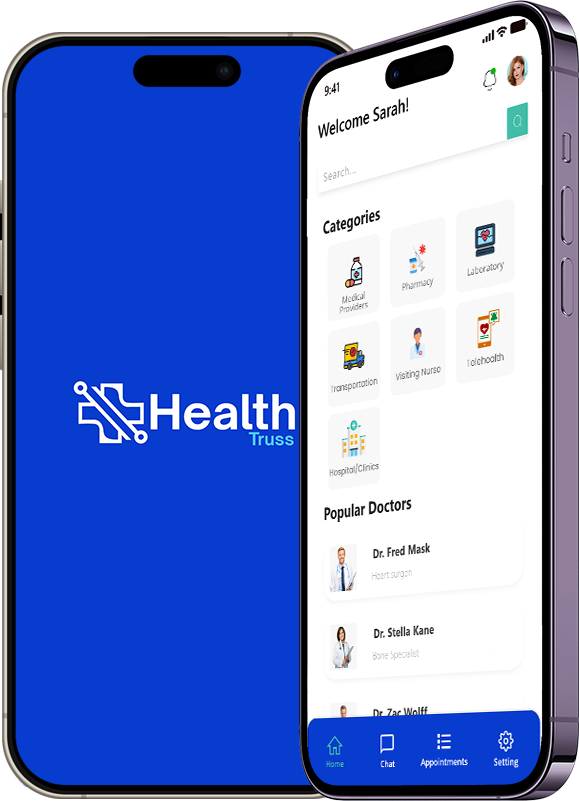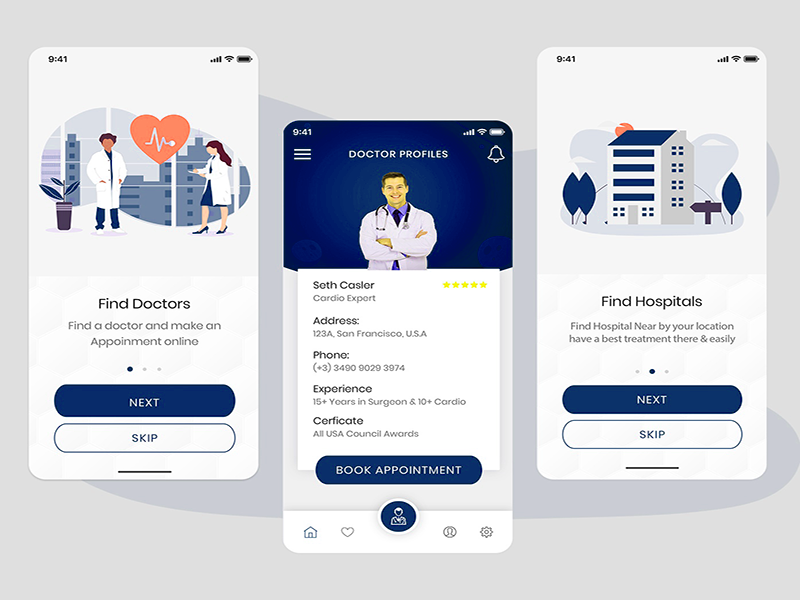How a Mobile App for Clinics Improves Interaction Between Doctors and Patients
How a Mobile App for Clinics Improves Interaction Between Doctors and Patients
Blog Article
The Future of Health Care: Why Clinics Need a Mobile App Today
As the medical care landscape continues to advance, centers deal with placing stress to adjust to client expectations for greater benefit and access. The combination of mobile applications can offer as an important method for boosting individual engagement and improving operations.
Altering Client Expectations
As the landscape of medical care evolves, individual expectations are undertaking a considerable change. Today's patients are increasingly seeking ease, ease of access, and personalized care.
In addition, people are becoming a lot more educated and encouraged, usually looking into treatments and conditions on-line prior to examinations. This enhanced recognition is paired with a demand for openness in healthcare procedures, including price price quotes and treatment options. Because of this, providers are obliged to adapt by adopting electronic tools that improve the person experience.
The expectation for efficient and timely interaction has never been greater, with many clients thinking about responsiveness an essential element of top quality treatment. mobile app for clinics. In this advancing landscape, health care companies need to recognize these transforming assumptions and leverage mobile applications to foster a much more patient-centric technique, making certain that they not only satisfy but go beyond the criteria set by today's informed customers
Enhancing Patient Engagement

Mobile applications facilitate interaction between clients and doctor, making it possible for real-time visit organizing, reminders for medication adherence, and straight messaging functions. These functionalities not only enhance convenience but additionally build a sense of accountability amongst clients. Mobile applications can supply educational web content customized to private requirements, assisting clients much better comprehend their problems and therapy choices.
The assimilation of gamification components within healthcare applications can likewise encourage people to engage in healthy and balanced actions, reinforcing favorable lifestyle changes. Ultimately, improving person involvement via mobile applications leads to enhanced health and wellness end results, greater person complete satisfaction, and an extra joint medical care experience.
Enhancing Clinic Workflow
Simplifying facility procedures is essential for improving process efficiency and optimizing person care. The execution of mobile applications can dramatically lower administrative problems, permitting doctor to focus a lot more on individual interactions. By automating appointment scheduling, client check-ins, and billing procedures, facilities can minimize wait times and boost total operational efficiency.
Mobile applications likewise assist in real-time access to patient documents, allowing medical care specialists to make educated choices rapidly. This immediacy not only improves the top quality of care but likewise reduces the probability of mistakes associated with misplaced or obsoleted details. Furthermore, leveraging mobile modern technology sustains an extra organized approach to managing individual follow-ups and therapy plans, making sure that no important actions are overlooked.
In addition, mobile applications can enhance stock management by offering facilities with devices to monitor supplies and drugs successfully. This allows for prompt replenishment and helps stay clear of disturbances in patient treatment due to equip lacks. By incorporating these capabilities into their everyday operations, facilities can create an extra reliable and natural setting, eventually bring about improved patient end results and satisfaction. Embracing mobile technology is not just a pattern; it is a necessary development in the healthcare landscape.
Improving Communication Channels
Effective interaction is often cited as a foundation of quality medical care distribution. In today's fast-paced medical setting, mobile applications can dramatically enhance interaction channels in between centers, people, and health care companies. By incorporating mobile applications into their operations, clinics can facilitate real-time communications, guaranteeing that individuals get prompt details regarding their visits, examination outcomes, and therapy strategies.
Mobile applications additionally encourage people to connect directly with their healthcare groups through secure messaging attributes. This straight line of communication fosters a sense of interaction and permits for immediate clarification of problems, which can cause better adherence to therapy protocols. In addition, press alerts can advise patients of upcoming appointments or medication routines, lowering no-show rates check my blog and enhancing total health outcomes.

Staying Competitive in Health Care
In a swiftly evolving healthcare landscape, organizations must focus on technology and flexibility to maintain an one-upmanship. The assimilation of mobile applications into medical care services is no longer optional; it is essential for clinics intending to boost client engagement, Recommended Site improve operations, and enhance total solution shipment.
As individuals progressively depend on electronic systems for health management, clinics that fall short to embrace mobile technology threat falling back. A properly designed mobile app can offer functions such as consultation scheduling, telemedicine examinations, and accessibility to clinical records, providing individuals with benefit and fostering loyalty.

Rivals are also spending in mobile services, so staying ahead calls for constant improvement and staying informed about technical developments. Clinics need to not only execute mobile applications yet likewise engage in routine updates and refinements. Ultimately, the effective assimilation of mobile innovation will certainly distinguish forward-thinking medical care companies and established the criteria for patient-centric treatment in a digital world.
Final Thought
To conclude, the integration of mobile applications in clinics is crucial to resolve the developing landscape of patient expectations. By enhancing client interaction, simplifying procedures, and improving communication channels, centers can dramatically increase wellness end results. In addition, the adoption of mobile modern technology positions clinics to remain affordable in an increasingly digital healthcare setting. Inevitably, the critical application of mobile apps stands for a vital action toward providing individualized and easily accessible healthcare, consequently fulfilling the demands these days's empowered individuals.
Eventually, boosting client involvement with mobile applications leads to enhanced health and wellness results, greater person complete satisfaction, and a much more joint medical care experience.Mobile apps likewise help with real-time accessibility to person records, allowing healthcare specialists to make informed choices promptly. In today's fast-paced medical setting, mobile applications can considerably enhance communication channels in between centers, patients, and health care suppliers.Mobile apps go to this website additionally empower people to communicate directly with their medical care teams through protected messaging functions. Inevitably, the critical execution of mobile applications represents a crucial step toward supplying easily accessible and tailored health care, therefore fulfilling the needs of today's equipped people.
Report this page